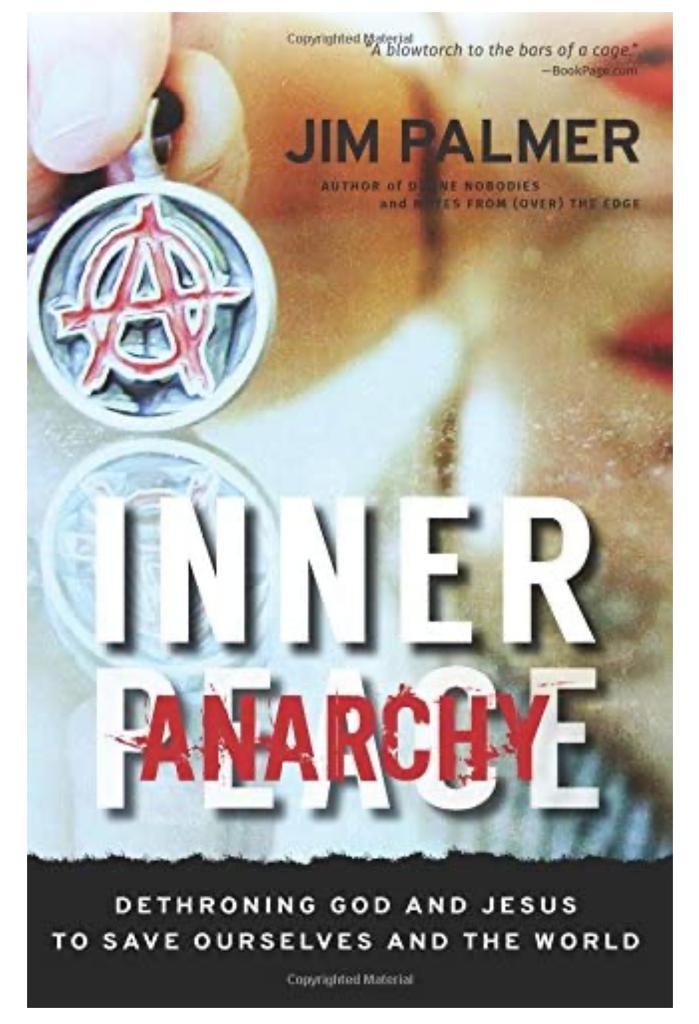“In my view, Jesus and Paul would have not gotten along well, and Jesus would have been dismayed by many of the concepts that Paul devised. No other individual shaped the Jesus story adopted by the church more than Paul. Western Christianity is Pauline. Paul wrote his letters before the gospels were written, and likely influenced the synoptic gospel writers. Jesus would have been dumbfounded by the mythology and theology that got attached to his name.
One thing Paul did very successfully, and in my view very unfortunately, was lock in the idea of atonement and bloodshed as salvific. The Jewish sacrifice of the lamb became the model for the Roman execution of Jesus who became the “lamb of God,” who died to take the rap for the sins of all humankind. The earliest followers of Jesus did not go about making crucifixes. The first carved cross doesn’t appear until the 7th century. Paul was the prime architect of Christian doctrine, which turned Christianity into
Cross-tianity.
However, obsession with substitutionary atonement cannot be blamed on Paul entirely. During their first millennium, Christians filled their sanctuaries with images of Christ as a living presence in a vibrant world. He appears as a shepherd, a teacher, and a healer. The world around him is ablaze with beauty. These are images of paradise—paradise in this world, permeated and blessed by the presence of God.
Studying the history of Christianity, from its first centuries to the present day, one discovers its early vision of beauty evolving into one of torture. In tracing the changes in society and theology that marked the medieval emergence of images of Christ crucified, one finds the imperial strategies embedded in theologies of redemptive violence and lays the groundwork for Christianity’s turn to holy war. It reveals how the New World, established through Christian conquest and colonization, is haunted by the loss of a spiritual understanding of paradise here and now.
I see great value and benefit to the biblical stories about the life and teachings of Jesus and the emergence and evolution of Christianity. However, in my view, it cannot be properly understood and appreciated without taking into account the factors that influenced and shaped it.
Paul’s letters in the New Testament were basically responses to questions and concerns that the earliest Christian communities posed to him, trying to sort out their beliefs and practices. You might ask, “Who died and made Paul pope?” Doesn’t matter, Paul found himself in the regrettable situation of being the expert on how to do Christianity. Keep in mind, Paul did not do this in a vacuum. He had been influenced and conditioned by his own previous religious training, and would have drawn upon these and other factors as the raw materials from which to devise his theology. All things considered, I don’t think any of us would have done any better. A lot of Paul’s insights and ways he put things together have great value in different ways, but the fact that we assume that Paul was somehow channeling God in his ideas and writings is our fault and not his.
It makes complete sense why Paul did what he did, and he should not be faulted for this. The burden is on us to apply critical thinking and a thorough investigation of the historical, cultural and personal factors that influence and shape all religion, including Christianity. A basic principle of this mindset is “consider the source,” which says that it is wise to consider all the factors that would have impacted and influenced the information and views presented by a particular source, in this case, Paul. Since Paul is the most influential figure in the conception of Christianity and Christian doctrine, it’s wise to understand Paul in this sense. One can appreciate the contribution of Paul without deifying his writings.

I find it curious that practically every creed of the Church, whether the early ecumenical creeds, the Roman Catholic creeds or the Protestant creeds are statements that outline the theological positions and doctrines of the Church, but hardly have any of the teaching of Jesus in them. A person doesn’t have to be a Paul-hater. He was doing the best he could. But one should look upon Christian theology with some skepticism given that you can’t hardly find Jesus anywhere in it. We painted Jesus white and dressed him up in Christian theology, but the brown-skinned, Middle Eastern Jew who turned religion on its head, got lost some 2,000 years ago on the dusty roads of Nazareth.
The significance of Jesus was not in his blood and his violent death. Jesus was understood to be an enlightened revolutionary, not a cosmic savior. The first Christians understood this. It wasn’t until later that the story and person of Jesus was re-framed and became official church doctrine.”
– Jim Palmer, Inner Anarchy
Get your copy -> http://tinyurl.com/ke25zdu




